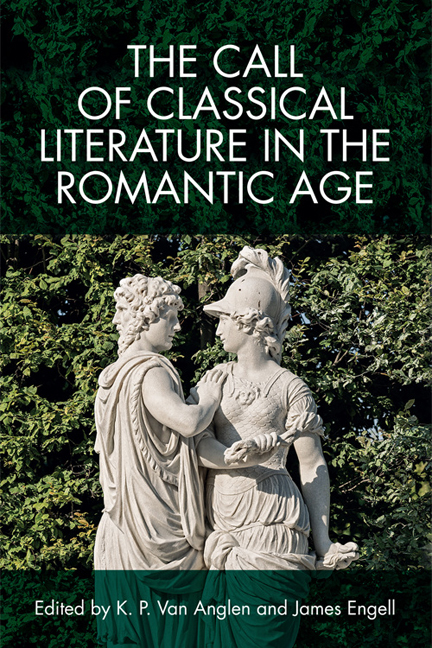11 - The Classics and American Political Rhetoric in a Democratic and Romantic Age
Published online by Cambridge University Press: 06 May 2021
Summary
During the same period when new grammar schools, academies, and colleges were introducing the Greek and Roman classics to the western frontier of the United States, to a rising middle class, to girls and women, and to African Americans, states were expanding the voting population to include all free adult white males. While the spread of manhood suffrage led to a more democratic style of politics, the expansion of classical education ensured that American courtrooms, legislatures, newspapers, and private letters continued to bristle with classical allusions. Although some stump speeches lacked such references, most political leaders took advantage of every opportunity to showcase their classical learning, even to broader audiences they hoped might respect, if not fully comprehend, their allusions. Classically trained, most American politicians lived a double rhetorical life, attempting to assure common voters of their ability to empathize with their concerns while simultaneously demonstrating their learning, wisdom, and virtue to constituents of all classes through their knowledge of the classics.
Fifth-century bce Athens, the first major democracy in history, provided a crucial bridge: American statesmen learned that they could not only make classical references but even ornament them in the aristocratic style of Cicero without seeming aristocratic, as long as their allusions concerned the glories of Athenian democracy. Despite their praise for the concise, plain, and rational speeches of the Athenians Pericles and Demosthenes, whose rhetorical style they claimed best suited a democratic age, their own speeches more often employed the copious, florid, and emotional style of Cicero. This was because their education emphasized Latin over Greek and because the era in which they lived was as romantic in aesthetic sensibility as it was democratic in ideology. Furthermore, while southern politicians used classical precedents to support the institution of slavery, northern abolitionists used the classical theory of natural law to assault it.
The study of Latin dominated American education throughout the antebellum period (1820–61). While Homer and the Greek New Testament were also staples of classical training, the time allotted to Latin far outweighed that assigned to Greek. Nearly all colleges not only required a facility with the works of Cicero and Virgil for admission but devoted most of their curricula to expanding students’ knowledge of Latin literature.
- Type
- Chapter
- Information
- The Call of Classical Literature in the Romantic Age , pp. 289 - 312Publisher: Edinburgh University PressPrint publication year: 2017

